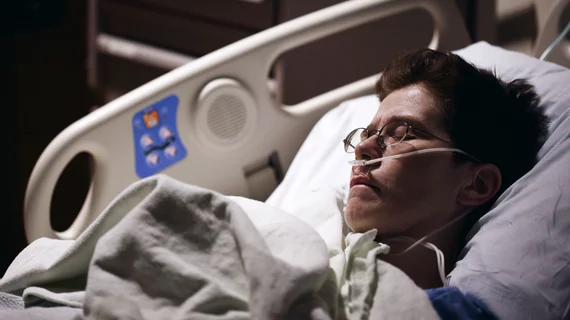New research published in Academic Radiology reveals a specific set of chest CT findings that are strongly indicative of mortality in patients with severe COVID-19.
Due to the worldwide shortage of healthcare workers and increased demand for medical care caused by COVID, clinicians have been tasked with prioritizing beds for the most at-risk patients.
“To mitigate the burden on the healthcare system while still providing the best possible care for patients, efficient diagnosis and information on the prognosis of the disease is needed and may assist medical staff in the triage of patients when allocating limited healthcare resources,” corresponding author Nicolas Malécot, a radiologist in Nimes, France, and co-authors explained.
Computed tomography has been an invaluable diagnostic tool during this time, as it can spot abnormalities in patients who are asymptomatic, in addition to being able to track disease progression and complications. The doctors of this study examined if CT could predict disease mortality and whether certain CT findings were linked with poorer prognoses.
The experts conducted their research in four medical centers and included 515 patients in the retrospective study. Using the patients’ chest CT scans, the researchers assessed the exam findings and compared them to patient mortality via documented follow-up information.
Looking over 30-day in-hospital survival rates the researchers found a few key things. Namely, that CT findings such as increased lung involvement, nodular consolidations and pleural effusions were all associated with lower survival rates. All three were independent predictors of 30-day in-hospital mortality.
In addition, advanced age was also linked with higher mortality. Notably though, increased pulmonary involvement was seen in fewer patients over the age of 75 than in those below that age threshold. However, despite the older patients having less lung involvement, they did have higher mortality rates than those below 75-years-old.
"To our knowledge, pleural effusion and nodular consolidation have not been previously described as mortality risk factors in COVID-19. These findings may contribute to a better identification of patients with a high risk of mortality and facilitate more individually aligned treatment,” the doctors concluded.
You can view the detailed findings in Academic Radiology.

